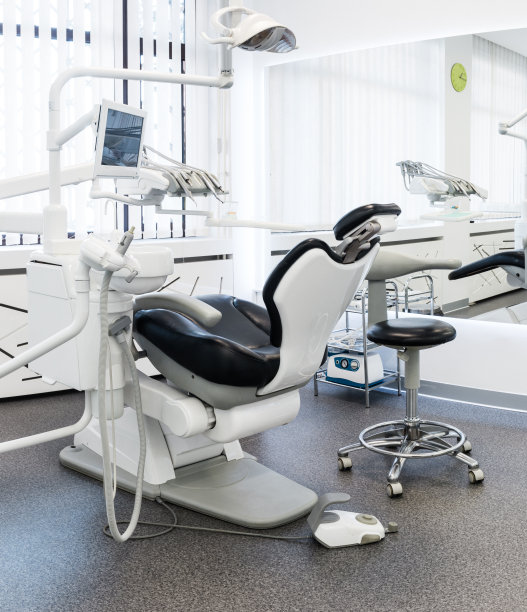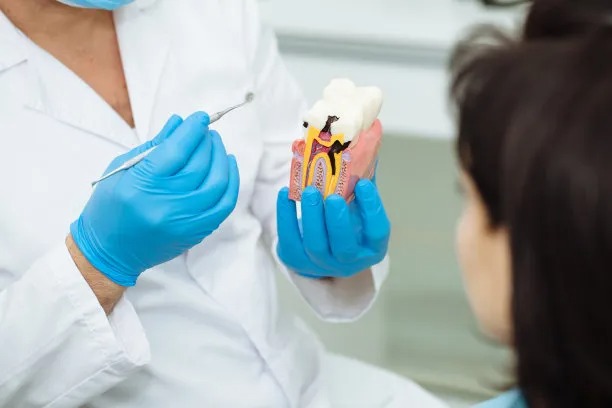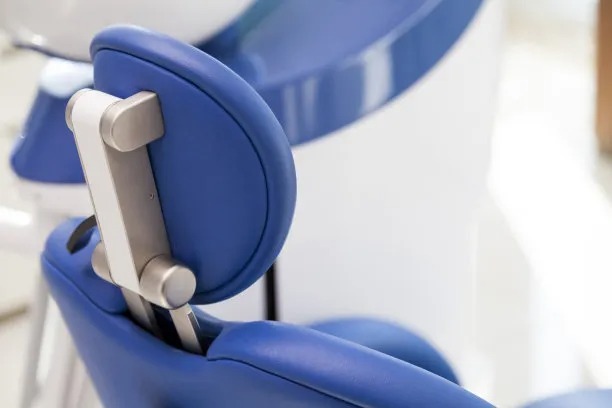Summary: Dental fillings are a common dental procedure aimed at restoring the structure and function of teeth affected by decay. A successful dental filling experience relies on proper preparation, effective communication with your dentist, diligent aftercare, and regular dental check-ups. This article will provide essential guidelines under these key areas to ensure that your dental filling experience is not only successful but also promotes optimal recovery for your oral health. Following these guidelines can lead to improved comfort, longevity of your fillings, and overall dental well-being.
1. Prepare for Your Dental Appointment Effectively

Preparation is crucial when it comes to ensuring a successful dental filling experience. Before your appointment, it is helpful to gather any necessary information about your dental health and current medications. Inform your dentist about your medical history, allergies, and any medications you may be taking, as this information can impact the procedure.
Additionally, consider bringing a list of questions or concerns to address during the appointment. This proactive approach can enhance communication and ensure that you feel comfortable and informed about the process. Understanding the procedure can help alleviate any anxiety and contribute to a more positive experience.
Finally, ensuring proper oral hygiene before your appointment can also prove beneficial. Brushing and flossing your teeth can help minimize bacteria and discomfort, making the procedure smoother for both you and your dentist.
2. Communicate Effectively with Your Dentist
Open and honest communication with your dentist is vital to your dental filling experience. Expressing any fears or concerns can lead to tailored approaches that cater to your comfort level. Dentists appreciate knowing that you may be nervous or anxious about the procedure, as this allows them to provide additional support and reassurance.
Its also essential to discuss the types of fillings available, such as amalgam, composite, or porcelain. Your dentist can guide you in choosing the material that best fits your needs, taking into account the location of the filling, your budget, and your future dental care plans.
Lastly, ensure that you clearly understand the aftercare instructions provided by your dentist. Dont hesitate to ask clarifying questions if any aspect of the aftercare seems unclear. This proactive strategy can significantly influence your recovery process.
3. Follow Post-Procedure Care Recommendations
After receiving a dental filling, adherence to aftercare recommendations is crucial for optimal recovery. Initially, avoid eating until the numbness from any anesthetic has fully worn off to reduce the risk of biting your cheek or tongue. Stick to soft foods for the first 24 hours post-procedure to allow the filling to settle properly.
Additionally, maintaining good oral hygiene is imperative. Continue to brush and floss gently around the filled area to prevent plaque buildup, ensuring the longevity of the filling. Using a fluoride mouth rinse can also provide extra protection during the healing process.
If you experience any discomfort or sensitivity to temperature changes, consider using toothpaste designed for sensitive teeth. Should any persistent discomfort arise, it is wise to follow up with your dentist promptly for further evaluation and possible adjustments.
4. Schedule Regular Dental Check-Ups
Regular dental check-ups play a pivotal role in sustaining optimal oral health, especially after receiving a filling. Visiting your dentist for biannual examinations provides an opportunity to detect any issues early on, such as decay around the filling or wear on the filling material.
During these visits, your dentist can also offer professional cleanings and personalized advice tailored to your oral health needs. This proactive approach contributes to your teeths overall longevity and helps prevent future dental problems.
It is equally important to monitor your dental health at home. Be vigilant about any changes in your oral health, such as pain near the filling or changes in chewing ability, and report these to your dentist immediately. Early intervention can save you discomfort and more extensive treatments.
Summary:
Successfully navigating your dental filling experience involves prioritizing preparation, fostering effective communication with your dentist, adhering to post-procedure care, and committing to routine check-ups. These guidelines collectively contribute not only to the success of the procedure but also to improving your overall oral health.
By following these essential recommendations, you can enjoy a comfortable and effective dental treatment that supports your oral well-being. Regular updates and communication with your dental care team are key to sustaining the health of your fillings and your teeth as a whole.
This article is compiled by Vickong Dental and the content is for reference only.
Vickong Dental
Vickong Dental is a large medical group established in Hong Kong in 2008 by professors from well-known medical universities in Guangdong and Hong Kong, as well as medical doctors from key national '985' universities (including Master's supervisors and senior professors). The chain of branches brings together expert dentists with PhDs and Master's degrees from Hong Kong and Mainland China, committed to providing high-quality dental treatment.
"Vickong Dental Practices the University Motto of 'Healing and Serving Society,' with a Stable Operation for Sixteen Years. It Has Been honored with Hong Kong Enterprise Leaders's Choice,' and is a Global Trusted Implant Center for the Nobel Implant System. Recommended by Hong Kong Metro Broadcast and Guangdong Television, it Serves Customers from Over Thirty Countries and Regions, Gaining the Trust and Favor of Citizens from the Guangdong-Hong Kong-Macau Greater Bay Area and Surrounding Cities.

Thousands of customers' unanimous praise
The most recognized and highly recommended dental service by customers in the Guangdong-Hong Kong-Macau Greater Bay Area
We Ensure You Receive Detailed Care and Attention Here
Hong Kong standards, Shenzhen prices, Your Trusted English-speaking dentists

Vickong Dental Medical-Grade Instrument Disinfection Process
Vickong Dental Medical-Grade Instrument Disinfection Process

Vickong Dental Chain: A Warm and Comfortable Environment for Treatment






Appointment Hours

Q&A
Why choose Vickong Dental?
Vickong Dental practices the university motto 「Medicine to Benefit Society」, with each branch bringing together highly qualified dentists with doctoral and master’s degrees from Hong Kong and the Mainland, and has maintained seventeen years of steady operation。Recipient of 「2024 Hong Kong Enterprise Leaders Brand」, 「2025 Hong Kong Enterprise Leaders Brand」, a Nobel Biocare Global Trusted Implant Center, and a brand recommended by Metro Radio Hong Kong and Guangdong TV。
To date, we have served customers from more than thirty countries and regions,earning exceptionally high word-of-mouth recognition and trusted recommendations from residents across the Guangdong-Hong Kong-Macao Greater Bay Area and surrounding cities
We have eight major branches in Zhuhai、Shenzhen,and a consultation and service assurance center in Hong Kong,so you can book a free consultation at any time for any questions,which is very reassuring.
If I do not accept the quotation after the CT scan, will I be charged??
No! As long as the actual treatment has not started, you will not be charged any fees.
Will there be any additional charges during the treatment process?
No, there won’t be any additional charges. Before treatment begins, we will clearly explain the treatment plan and its corresponding fees. Only after the patient agrees and signs the consent form will we proceed with the dental service.
Can I pay in Hong Kong dollars?
Yes. Vickong Dental accepts payment in Hong Kong dollars. The amount will be converted based on the exchange rate of the day, and the applicable rate will be clearly communicated to you in advance.
Can I reschedule my appointment at any time?
Yes. Please contact us via **WeChat** or **WhatsApp** as early as possible, providing your original appointment time and details, along with your preferred new date and time slot for rescheduling.













